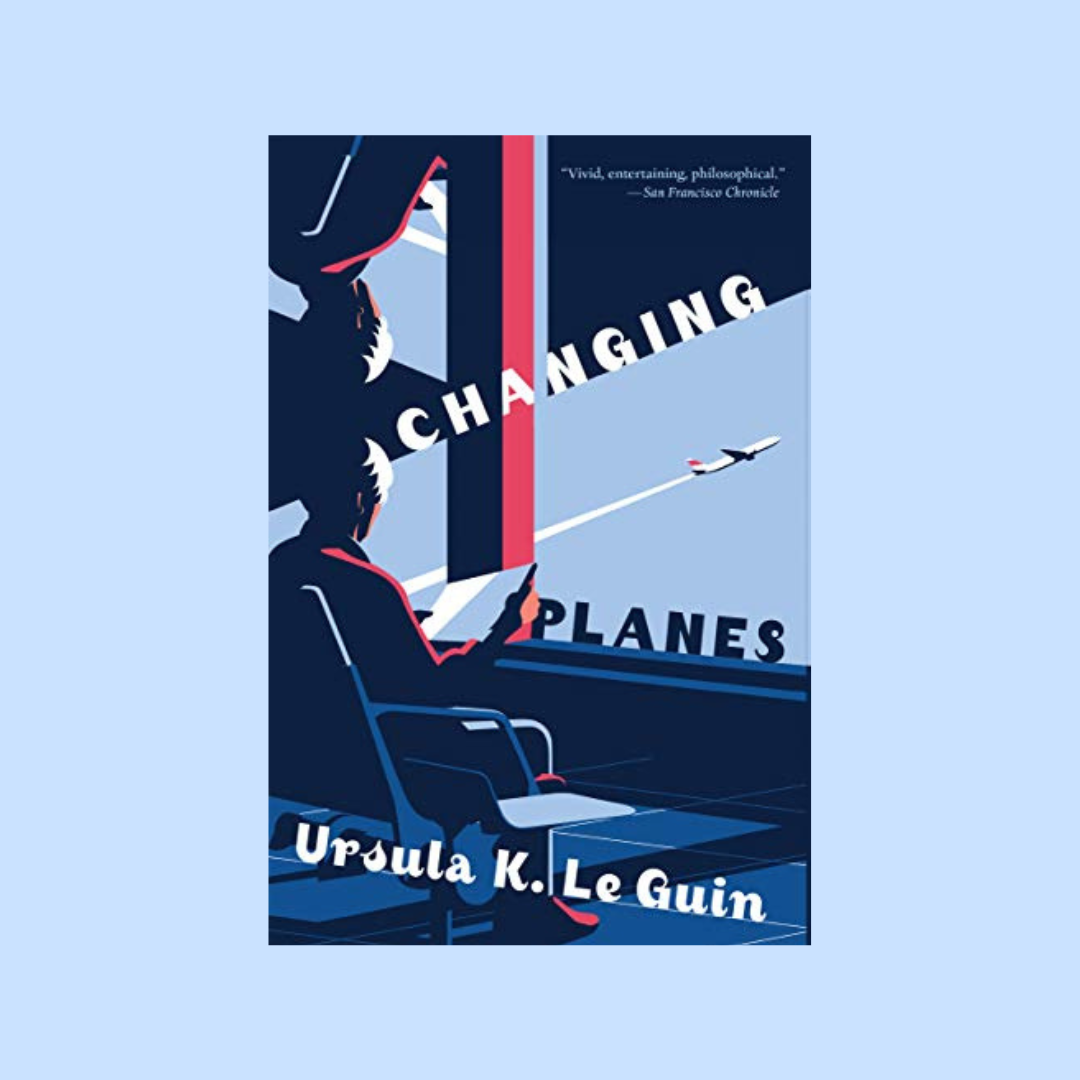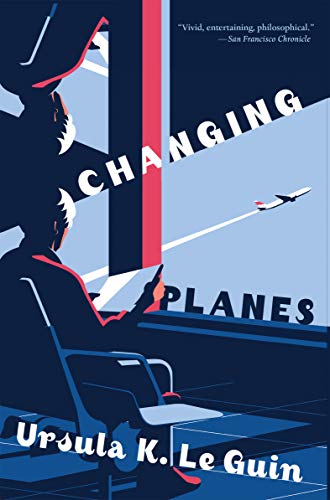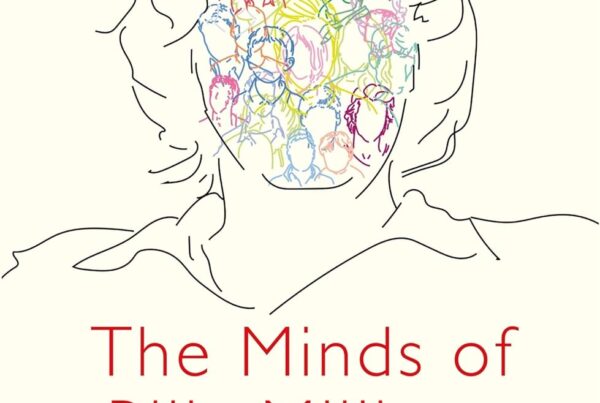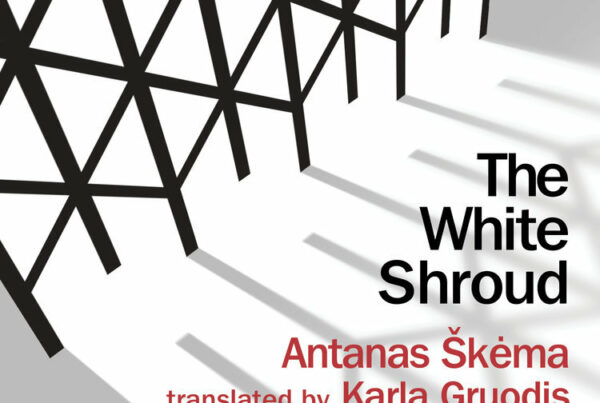
When meeting people from different cultures, does the way they think, act, and see the world baffle you? Are you wishing that you could experience the world through their eyes to understand it a little better?
Ursula K Le Guin’s speculative fiction short-story collection Changing Planes takes traveling and experiencing new cultures to another level, inviting you on a journey to go beyond the realms of what we know as normal to other planes using the Sita Dulip Method, featured in the first story. She uses the term ‘planes’, to describe the various societies portrayed in each short story, providing vignettes of what it is like to be a part of these other worlds. The collection reads like a travel guide, exploring the ins and outs of what is known and unknown about each culture, some stories ending more open-ended than others. Yet, the beauty of the collection comes from how foreign but familiar the variations in the cultures are.
This balance notably comes through in her short story, The Silence of Asonu, featuring the planet of Asonu where people stop speaking once they reach adulthood. The children of Asonu communicate with one another in a way that’s familiar to us, like bickering, trying to share, playing, etc., but the verbal interactions grow fewer as they grow older. Curiously they do not engage in any form of non-verbal communication, which confuses tourists but prove to be perfect listeners as well. We know from the real world that what we do not understand can frighten us, and the tourists and researchers visiting Asonu are no exception. As the story progresses, a scientist goes on to kidnap a child from Asonu, trying desperately to understand this novel linguistic tradition, even escalating to abuse to find these ‘answers’ but to no avail. Despite being a fictional short story, Le Guin captures the reality of research and our endless attempts to find meaning in other cultures, for instance indigenous cultures, trying to ‘rationalize’ their customs and behaviors– do we consider where we draw the line?
The collection is no one-trick-pony either, also including a clever mix of dystopian cautionary tales, some more unsettling than others, carefully disguised as well-written sci-fi pieces. One I particularly enjoyed is Wake Island, and it hit close after several mostly sleepless nights studying for exams. The premise of Wake Island is a genetic engineering experiment conducted to allow people to never need sleep. Sounds like the ideal to get everything you could ever desire done, right? Well, whether we like it or not, sleep does have an important function and Le Guin does not fail to acknowledge it. With deep, sunken eyes, and exhausted, lifeless expressions, the people of Wake Island struggle to realize consciousness as a result of never truly being able to recharge. After all, where is the wonder in life without dreams and stories? What’s the necessity of language without the capacity to embrace all that we can do?
Evidently no stranger to using allegories in her work, Le Guin effortlessly conceptualizes a different aspect of how we approach our understanding of other cultures in each story, ranging from fear towards technology gone awry in Porridge on Islac, to unraveling the nuances of conformity in Social Dreaming of the Frin. Through her meticulous use of imagery to build these worlds, and her captivating writing style, Le Guin takes you on a journey that you can enjoy little by little, without needing to devour it all at once. Each story provides a unique perspective on how we view our surroundings and invites an intriguing discussion.
Available to buy online, starting from €20.00

When meeting people from different cultures, does the way they think, act, and see the world baffle you? Are you wishing that you could experience the world through their eyes to understand it a little better?
Ursula K Le Guin’s speculative fiction short-story collection Changing Planes takes traveling and experiencing new cultures to another level, inviting you on a journey to go beyond the realms of what we know as normal to other planes using the Sita Dulip Method, featured in the first story. She uses the term ‘planes’, to describe the various societies portrayed in each short story, providing vignettes of what it is like to be a part of these other worlds. The collection reads like a travel guide, exploring the ins and outs of what is known and unknown about each culture, some stories ending more open-ended than others. Yet, the beauty of the collection comes from how foreign but familiar the variations in the cultures are.
This balance notably comes through in her short story, The Silence of Asonu, featuring the planet of Asonu where people stop speaking once they reach adulthood. The children of Asonu communicate with one another in a way that’s familiar to us, like bickering, trying to share, playing, etc., but the verbal interactions grow fewer as they grow older. Curiously they do not engage in any form of non-verbal communication, which confuses tourists but prove to be perfect listeners as well. We know from the real world that what we do not understand can frighten us, and the tourists and researchers visiting Asonu are no exception. As the story progresses, a scientist goes on to kidnap a child from Asonu, trying desperately to understand this novel linguistic tradition, even escalating to abuse to find these ‘answers’ but to no avail. Despite being a fictional short story, Le Guin captures the reality of research and our endless attempts to find meaning in other cultures, for instance indigenous cultures, trying to ‘rationalize’ their customs and behaviors– do we consider where we draw the line?
The collection is no one-trick-pony either, also including a clever mix of dystopian cautionary tales, some more unsettling than others, carefully disguised as well-written sci-fi pieces. One I particularly enjoyed is Wake Island, and it hit close after several mostly sleepless nights studying for exams. The premise of Wake Island is a genetic engineering experiment conducted to allow people to never need sleep. Sounds like the ideal to get everything you could ever desire done, right? Well, whether we like it or not, sleep does have an important function and Le Guin does not fail to acknowledge it. With deep, sunken eyes, and exhausted, lifeless expressions, the people of Wake Island struggle to realize consciousness as a result of never truly being able to recharge. After all, where is the wonder in life without dreams and stories? What’s the necessity of language without the capacity to embrace all that we can do?
Evidently no stranger to using allegories in her work, Le Guin effortlessly conceptualizes a different aspect of how we approach our understanding of other cultures in each story, ranging from fear towards technology gone awry in Porridge on Islac, to unraveling the nuances of conformity in Social Dreaming of the Frin. Through her meticulous use of imagery to build these worlds, and her captivating writing style, Le Guin takes you on a journey that you can enjoy little by little, without needing to devour it all at once. Each story provides a unique perspective on how we view our surroundings and invites an intriguing discussion.
Available to buy online, starting from €20.00




